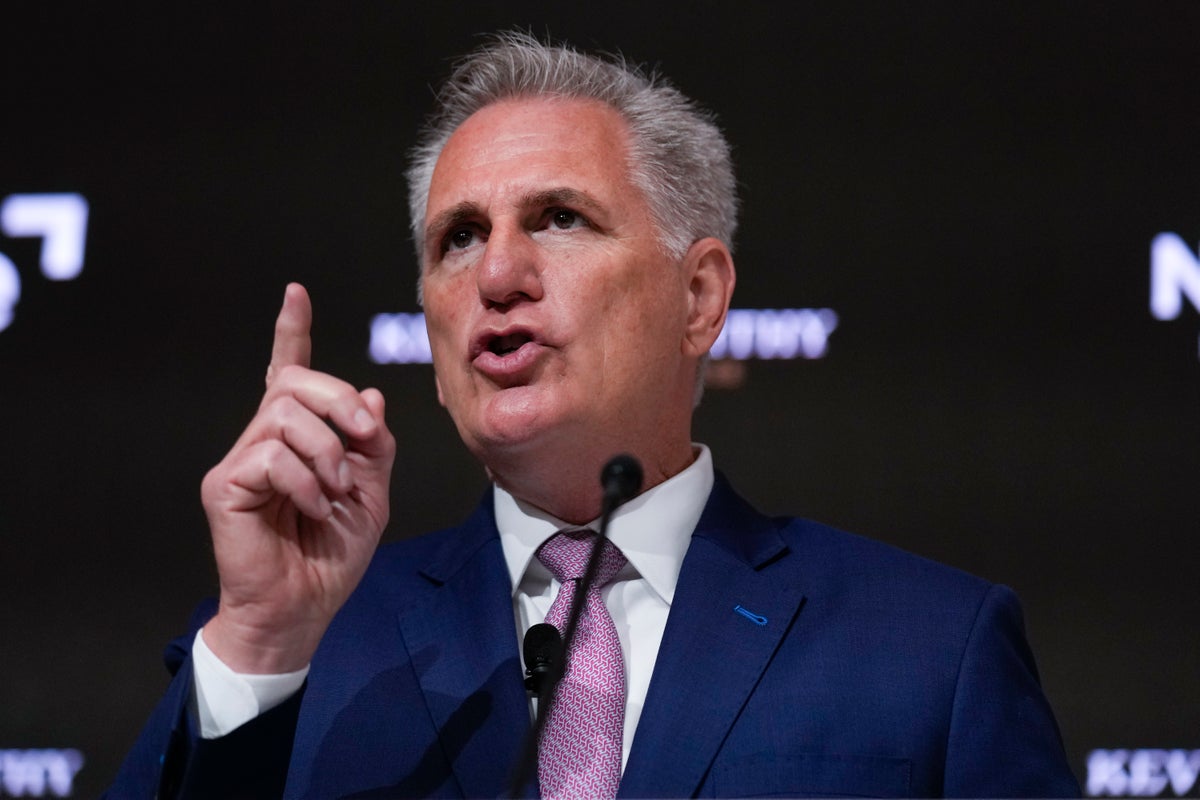
Speaker Kevin McCarthy is hurtling toward one of the most consequential weeks of the new House Republican majority as he labors to pass a partisan package that would raise the nation's debt limit by $1.5 trillion in exchange for steep cuts that some in his own party oppose.
McCarthy has almost no room for error with his slim five-seat majority hold on power in the House, but has scoffed at the drama bearing down on him, mocking public interest at the will-he-or-won't-he anticipation of the embattled Republican speaker's ability to bring his fellow Republicans in line.
But the political stakes are sky-high for McCarthy, who is trying to entice President Joe Biden to the negotiating table. The nation is teetering toward a debt default crisis, needing to lift the borrowing cap to keep fully paying the bills in a matter of weeks.
"We will hold a vote this week, and we will pass it," McCarthy vowed in a Sunday interview on Fox News.
Even if McCarthy can muscle the package to pasage this week, it has almost no chance of becoming law. Biden and his top congressional allies, Senate Majority Leader Chuck Schumer and House Democratic Leader Hakeem Jeffries, say they are unwilling to negotiate over the debt ceiling. The House Republican package is essentially dead on arrival in the Democratic-controlled Senate.
Still, McCarthy is trying to force Democrats to bargain, hoping that muscling his own party's proposal to passage will be an opening bid that Biden will be forced to respond to with his own offer. Biden has derided the Republicans' “wacko” ideas, but even some Democrats, including Sen Joe Manchin, D-W.Va., say it's time to negotiate.
But first, the Republican speaker faces the enormous task of passing the package, uniting what his team refers to as the “five families” — the often warring factions of conservatives and far-right Republicans that make up the House GOP majority.
The hard-right House Freedom Caucus has yet to bless McCarthy's proposal — though key conservatives who have bucked the speaker, including Rep. Matt Gaetz, R-Fla., have spoken favorably of it, having gained much of what they wanted. Yet other conservatives are also unsure they can support the deal, particularly the loss of new tax credits for renewable energy production that would be rolled back.
The GOP whip team under Rep. Tom Emmer, R-Minn., is heavily counting the votes. With the House not returning to work until late Tuesday evening, the floor action is not expected until Wednesday at the earliest.
The sweeping 320-page package is a wish list of conservative priorities. In exchange for lifting the nation's debt limit by $1.5 trillion into March 2024, it would impose a range of Republican ideas.
Among them, rolling back federal spending to fiscal 2022 levels and imposing a 1% cap on future spending growth for the next decade. It would impose new work requirements for recipients of government aid and it would rescind Biden's proposal to forgive up to $20,000 in student loan debt.
Pointedly the Republican package would undo many of Biden's signature proposals for fighting climate in last year's Inflation Reduction Act, and instead put in place the Republicans' own sweeping proposal to boost oil and gas drilling and ease permitting regulations.
Treasury has announced it is taking “extraordinary measures” to keep paying the nation's bills, having already hit the nation's $31 trillion debt ceiling. The debt ceiling will need to be lifted by summer to avoid any trouble ahead.







